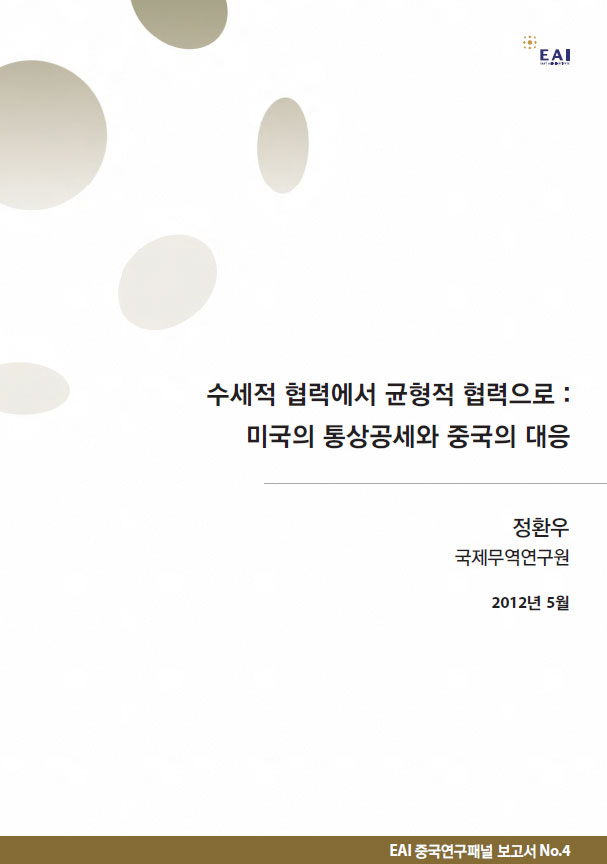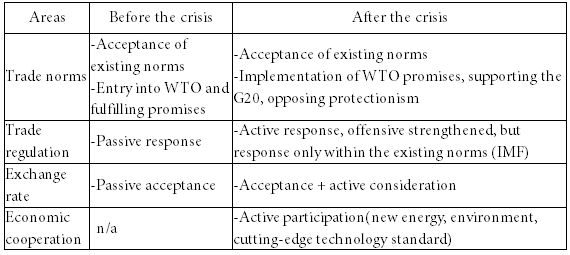
From Defensive to Balanced Cooperation: China’s Response to the U.S. Trade Offensive
Working Paper | 2012-07-17
Hwan-Woo Jung
Author
Hwan-Woo Jung, Institute for International Trade
Abstract
China's trade policies toward the United States has transformed from initially defensive cooperation at the time of its entry into the World Trade Organization (WTO) in 2001 to a more balanced cooperation. Also, in terms of purpose, Chinese polices are moving toward cooperation and expansion of mutually managing areas.
There are four main parts to trade policies: trade regulation, exchange rate, economic cooperation, and trade norms. As show in the table below, China's trade policy toward the United States changes depending on the agenda. With trade regulation, China has clearly demonstrated a will to respond strongly within the boundary of international norms. At the same time, while responding forcefully, China has cautiously and gradually accepted U.S. demands in areas under its control such as with the exchange rate. In contrast, China is actively accepting global trade norms and respecting multilateral and regional organizations. Also, in areas of economic cooperation where win-win effect is guaranteed, China demonstrates active cooperative. China is moving away from a passive response to a more active response while also pursuing balanced cooperation. In this way, China has been aggressive when necessary yet cooperative in more feasible areas.
Comparison of China's trade policy towards the U.S. before and after the financial crisis

What will the future be like? It depends upon the sustainability of external and internal elements in which a cooperative balance strategy is possible. China will maintain its current policy if its economic growth can be maintained under the existing trade order. In contrast, if the United States changes its policy of trade norms or China faces less room for economic growth under the WTO regime, Beijing will seek an alternative. Such a scenario though will remain unlikely so long as the United States needs cooperation from China and that under the free trade regime, China's economic growth will be unaffected.
The full text in Korean is available here
Center for China Studies
Center for Trade, Technology, and Transformation
Future of Trade, Technology, Energy Order
U.S.- China Strategic Competition
Rising China and New Civilization in the Asia-Pacific
![[ADRN Working Paper] The Impact of the Millennials and Gen Z on Democracy in Northeast Asia](/data/bbs/eng_workingpaper/202505231731371005535793(0).jpg)
Working Paper
[ADRN Working Paper] The Impact of the Millennials and Gen Z on Democracy in Northeast Asia
Asia Democracy Research Network | 2012-07-17
![[ADRN Working Paper] Vertical Accountability in Asia: Country Cases (Final Report Ⅲ)](/data/bbs/eng_workingpaper/20250428171032795173098(0).jpg)
Working Paper
[ADRN Working Paper] Vertical Accountability in Asia: Country Cases (Final Report Ⅲ)
Asia Democracy Research Network | 2012-07-17